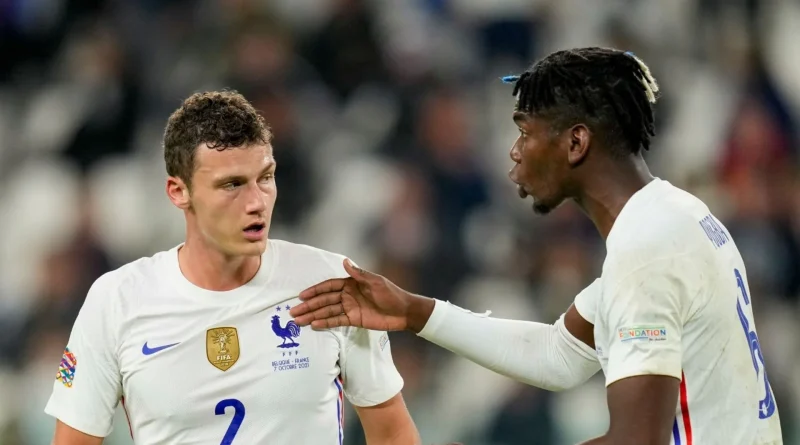If France were playing in the back Graden i’d close to certains
“If France Were Playing in the Back Garden, I’d Close the Curtains”: A Deep Dive into Football Rivalries and Fan Culture
Football, often dubbed the beautiful game, if France were playing is not only about the players, the strategies, or the goals scored; it’s deeply intertwined with the passion and emotions of its fans. The phrase “If France were playing in the back garden, I’d close the curtains” encapsulates the intensity of these feelings and offers a glimpse into the world of football rivalries. This article delves into the origins, significance, and broader implications of such expressions in football culture, examining how rivalries shape the sport and its community.
Origins and Context of the Phrase
The phrase “If France were playing in the back garden, I’d close the curtains” is a hyperbolic expression of disdain, often used by fans to articulate their disinterest or dislike for a particular team. Though adaptable to various teams based on the speaker’s preferences, it has been notably associated with fans of England regarding their historical rivalry with France.
This sentiment is rooted in numerous heated encounters between England and France, both on and off the football pitch. The phrase embodies a mix of playful banter and genuine rivalry, elements that are intrinsic to football culture. These encounters are not merely about the 90 minutes of play; they encompass historical grievances, national pride, and the collective memory of previous matches.
The Psychology Behind Football Rivalries
Football rivalries are a fascinating study in human psychology, reflecting deeper social, cultural, and emotional layers. When fans express strong sentiments, such as those encapsulated in the phrase, several psychological aspects come into play:
Identity and Belonging: Supporting a football team often extends beyond mere preference; it becomes a part of one’s identity. Fans see themselves as part of a larger community, unified by their shared support and experiences.
Emotional Investment: The emotional rollercoaster of victories and defeats creates a deep bond between fans and their teams. This bond often translates into strong reactions against rival teams, whom they view as direct adversaries.
Historical Context: Many football rivalries are steeped in history. Past encounters, controversial moments, and historical context all contribute to the rivalry’s intensity. These elements create a narrative that fans become deeply invested in.

Social Influence: The collective nature of football fandom means that individual feelings are often amplified by the group. The shared experience of watching a match, celebrating a victory, or lamenting a loss strengthens the group’s identity and intensifies rivalries.
Notable Football Rivalries and Their Significance
While the England-France rivalry is noteworthy, it is just one of many intense football rivalries worldwide. Each rivalry carries its own historical and cultural significance, reflecting the unique context of the teams involved. Here are a few iconic rivalries:
El Clásico (Spain): The rivalry between Real Madrid and Barcelona is one of the most famous and intense in the world. It transcends football, encompassing political, cultural, and regional identities. The matches between these two giants are watched by millions globally and are often seen as a microcosm of the broader tensions within Spanish society.
Old Firm Derby (Scotland): The matches between Celtic and if France were playing Rangers are steeped in history and are as much about religious and political identity as they are about football. This rivalry divides Glasgow and is characterized by passionate, and sometimes volatile, fan engagement.
Superclásico (Argentina): Boca Juniors vs. River Plate is a rivalry that divides Buenos Aires and captures the passion of Argentine football. The Superclásico is renowned for its electric atmosphere, with fans creating a cauldron of noise and color that epitomizes the fervor of South American football.

Milan Derby (Italy): The clashes between AC Milan and Inter Milan, known as the Derby della Madonnina, are fiercely contested, reflecting the pride and tradition of two of Italy’s biggest clubs. This rivalry is notable for its mix of local pride and international acclaim, with both teams boasting significant histories in European competition.
The Role of Media and Fan Culture
The media plays a crucial role in shaping and perpetuating football rivalries. Through coverage, commentary, and narratives, the media amplifies the stakes of matches and the emotions of fans. This amplification can have both positive and negative effects:
Building Anticipation: The media helps build anticipation for matches, creating storylines that engage fans and add depth to the rivalry. Pre-match analysis, historical retrospectives, and player interviews contribute to the build-up.
Intensifying Emotions: While building anticipation.if France were playing the media can also intensify emotions, sometimes leading to heightened tensions. Sensationalist coverage and provocative headlines can fuel animosity between fan bases.
Promoting Rivalries: Rivalries are good for business. High-profile matches attract larger audiences, generate more revenue, and increase engagement across various platforms. The media leverages these factors to maximize viewership and interaction.
Fostering Sportsmanship: Conversely, the media can also promote messages of sportsmanship and respect. Highlighting positive interactions between rival fans and focusing on the beauty of the game can help mitigate negative aspects.

Fan culture itself is a rich tapestry, woven from the traditions, chants, and rituals that define each supporter group. These elements contribute to the unique atmosphere of matches and the identity of clubs. Rivalries are a key part of this culture, shaping the behavior and expectations of fans.
Balancing Passion and Sportsmanship
While rivalries add excitement and intensity to football. it is essential to balance this passion with sportsmanship and respect for opponents. This balance ensures that the sport remains a positive and unifying force. Here are some ways to foster a healthy rivalry culture:
Promoting Respect: Clubs and governing bodies can promote messages of respect and fair play. Campaigns that emphasize the importance of sportsmanship can help mitigate negative behaviors.
Educating Fans: Educating fans about the history and significance of rivalries can deepen their appreciation and understanding. This knowledge can transform hostile feelings into a more respectful and informed form of rivalry.



